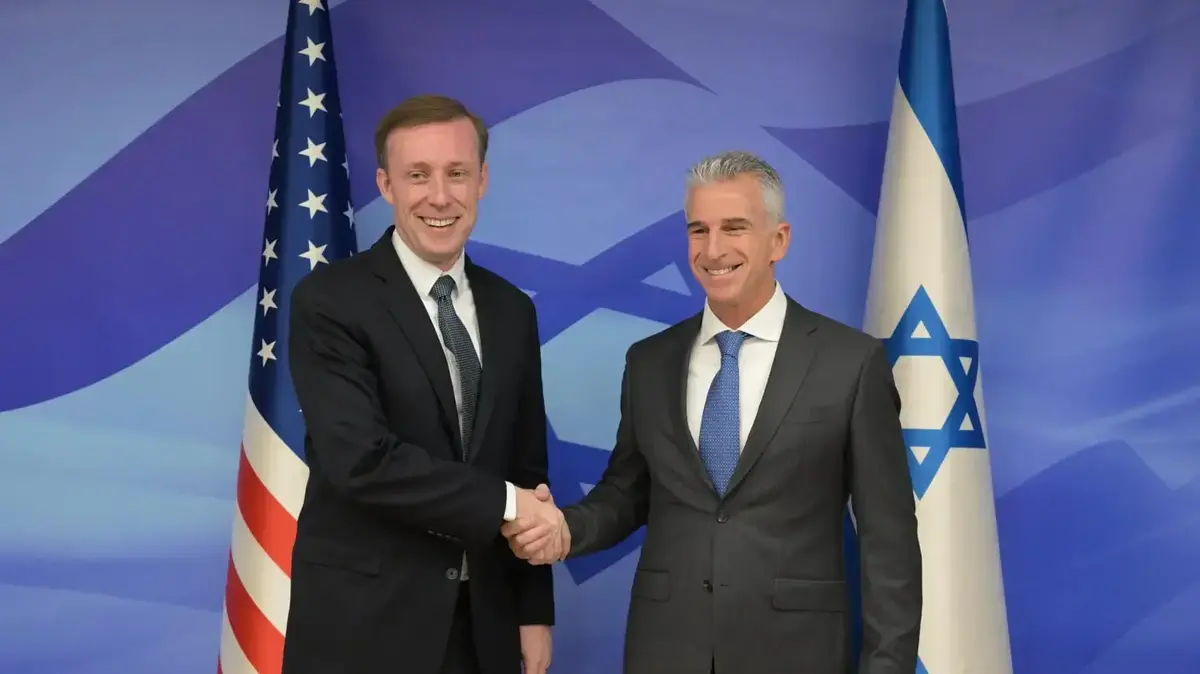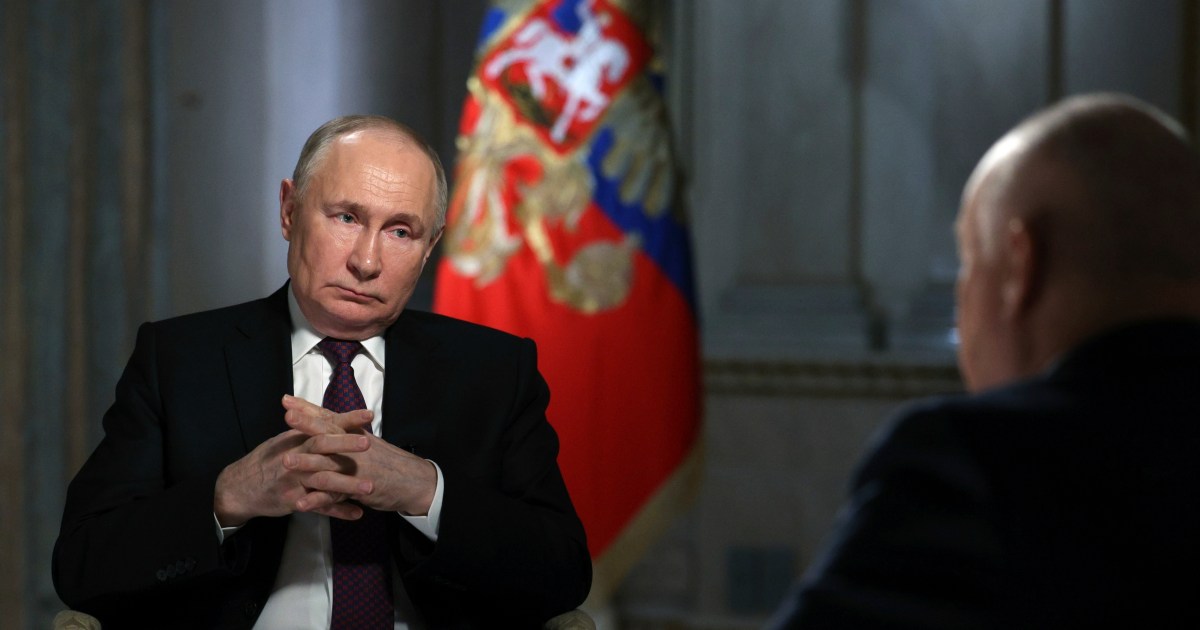Enlarge image
Missile Capabilities Exhibition in Tehran, Iran (January 2022)
Photo: Vahid Salemi/AP
The news caused a stir in Israel and the Arab world: In the nuclear negotiations with Iran, the USA is considering removing Iran's Revolutionary Guards, which are responsible for countless bombings and terrorist attacks, from its terror list.
The shock ran deep when Israel's Prime Minister Naftali Bennett and Foreign Minister Yair Lapid held a press conference last Friday.
They warned very clearly and very sharply that such a move would be catastrophic for the entire Middle East.
The US should not throw its allies in the region under the wheels.
Jordan, the United Arab Emirates (UAE), of course the Saudis and many others in the region see it the same way.
Behind this idea could be US strategists like Robert Malley or Jake Sullivan, one special envoy for Iran, the other national security adviser in the Biden administration.
Both were involved in the first nuclear deal under President Barack Obama in 2015.
Even then, the United States' Middle East partners criticized many details of the deal, including the lack of any restrictions on Iran's missile program and the release of frozen accounts.
Israel's then Prime Minister Benjamin Netanyahu, for example, warned that this money would benefit the proxies, Tehran's representatives in the Arab world, such as Hezbollah in Lebanon, Hamas and Islamic Jihad in Gaza, or the Houthis in Yemen.
That's exactly how it happened.
Just last week, US General Kenneth McKenzie, the outgoing commander of US Central Command, warned that Tehran now has around 3,000 missiles, many of which could reach Israel;
not to mention the approximately 140,000 rockets aimed at the Jewish state by the Shiite Hezbollah in Lebanon.
While negotiations continue in Vienna and the impression is created that US President Joe Biden needs an agreement with the ayatollahs more urgently than vice versa, Israel is already preparing for the time after the signing of a new JCPOA deal.
Jerusalem knows that it can hardly influence the course of the talks.
In order to understand how serious the situation is, it is enough to look at the escalating development in the past few weeks alone.
Twice an Iranian drone entered Israeli territory from Lebanon.
One was shot down, the second managed to return to Lebanon unharmed.
Hezbollah leader Hassan Nasrallah boasted that his organization had a large number of technologically first-class drones - made in Iran, of course.
The regime in Tehran decided some time ago to react against the superior Israeli air force by producing combat drones.
It has now become known that Israel destroyed several hundred drones in an airstrike in western Iran last month.
Allegedly for this reason, Iran carried out a missile attack on positions near Erbil, the capital of Iraqi Kurdistan, on Saturday a week ago.
According to Iranian information, there is a secret base of the Israeli secret service Mossad there.
On the same day, Iran announced that the Revolutionary Guards prevented Mossad from sabotaging the Fordo nuclear facility and arrested those responsible.
It is no secret that Israel is recruiting people in Iran to damage nuclear facilities and at least delay further development of nuclear capabilities.
Conversely, it is similar.
Israel recently reported the arrest of six Jewish Israelis whose families were originally from Iran.
They are said to have spied for Tehran.
The reports of attacks and counterattacks - not to mention Israeli airstrikes on Iranian positions in Syria - are coming at ever shorter intervals, and the situation could escalate at any time if either side overreacted or misjudged what was happening.
The danger is particularly high when a new nuclear deal has been signed.
Then Tehran would no longer have to hold back so much towards Israel.
Attacks from Lebanon and Syria are likely to increase.
Even minor military victories within Israeli territory would be celebrated in Iran and the so-called "Arab Street."
The Shiite state is still considered the only Muslim country that "really" cares about the needs and concerns of the Palestinians and dares to stand up to the Zionists.
Ayatollah Khamenei will know how to use the PR effect of such actions to expand Iranian power over the Saudis and others.
The »war between the wars«, as this no longer secret battle with Tehran is called in Israel, also has another component: cyber attacks.
Just last Monday, a number of Israeli government websites were shut down, presumably by Iran.
These included the pages of the Prime Minister's office, the Ministry of the Interior, the Ministry of Health and some other important institutions.
Israel's army and all of the country's logistics could be paralyzed
It wasn't the first time such an attack had succeeded.
It goes without saying that Israeli hackers are also repeatedly taking successful action against Iranian authorities and facilities.
One can assume that Israel will react accordingly to this cyber attack.
At some point, one of the two states could succeed in hitting the enemy's infrastructure badly.
With then in turn corresponding consequences, possibly also in the military field.
The negotiations in Vienna are taking place against this »background noise«.
The Israelis fear that the US will be too accommodating to the Shia regime itself in controlling its nuclear capabilities.
The new agreement, according to Israeli and Arab experts, will be much worse than that of 2015.
Israel, the Saudis, Bahrain, the Emirates will all continue to expand their military and intelligence cooperation, as Tehran will have a new political and military boost with the new agreement and will probably act more aggressively than before.
At the same time, the Arab states may also try to reach an understanding with Iran in some way, they may adopt a two-pronged approach, which could weaken Israel's strategic position if it comes to that.
Jerusalem fears that the West will again blindly allow the next world catastrophe, similar to the current war against Ukraine, due to a total misjudgment of Russian President Vladimir Putin's ambitions.
What is of immediate concern to Israeli military and politicians is Iran's long-running attempt to add GPS precision capabilities to Hezbollah's missiles.
With such accurate missiles, it would be enough if a few percent could overcome the Israeli defense system.
Israel's army and all of the country's logistics could be paralyzed, leaving the Jewish state facing a military and civilian catastrophe.
Premier Bennett knows that, of course.
And must ensure that this danger is averted as quickly as possible.
There is a growing sentiment in Israel that it is better to act sooner than later – Washington's wishes must be taken into account, but not at the expense of national security.
Should there be a new deal with Iran, the West will probably smugly pat itself on the back again.
In the Middle East, however, nobody will be happy.
With the exception of the regime in Tehran.







